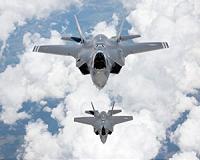 |
Moscow (AFP) Feb 26, 2011 Russia on Saturday successfully launched a satellite vital to the deployment of its own navigation system after the failure of an earlier attempt prompted the Kremlin to sack two top space officials. The Federal Space Agency said in a statement that the high-tech Glonass-K satellite reached its intended orbit about four hours after blasting off on top a Soyuz-2 rocket from Russia's northern Plesetsk launchpad. "We have established and are maintaining steady telemetry communications with the space craft," a spokesman for the defence ministry's space forces told the Interfax news agency. "The on-board systems of the Glonass-K satellite are functioning normally," the official said. The launch was watched closely by Russian space and military officials after the last attempt to put three Glonass satellites in orbit failed spectacularly on December 5. The three orbiters would have completed Russia's own navigation system and enabled the military to finally target its missiles from space -- a technology that has long been available to NATO countries. But an error prevented the Russian craft from reaching its set distance from Earth and the satellites ended up plummeting into the Pacific off the US state of Hawaii. A furious President Dmitry Medvedev fired two top space officials after a probe placed the blame on a simple fuel miscalculation. The three satellites would have completed a Glonass system whose research had been started by the Soviet Union in 1976 before being interrupted and then picked up again by the country's president-turned premier Vladimir Putin. The country's de facto leader has vowed to place Glonass readers on every car made in Russia by 2012 and hailed the system as an example of how the country can claw back its Soviet-era technological might. Russia refuses to use the Global Positioning System (GPS) developed in the United States out of fears that its military's access to the technology might be cut off in times of war. December's setback forced Russia to delay the Glonass system's deployment by at least one year and highlighted the persistent problems plaguing an industry that was once the pride of the Soviet Union. Glonass needs 24 functional orbiters to successfully cover the globe and start receiving its first commercial clients. The latest launch brings the satellite total to 27. But the system is still not working on a world scale because four of the craft have been undergoing repairs. The accident prompted Russia to shift its strategy and decide to put up only one satellite whose potential failure would not bear the 2.5 billion ruble ($85 million) price tag of December's mishap. But Saturday's success prompted the head of the Federal Space Agency to announce Russia was moving back to multiple satellite launches that should complete the global system by the end of the year. "Everything should go smoothly now," Federal Space Agency chief Anatoly Perminov told ITAR-TASS.
Share This Article With Planet Earth
Related Links GPS Applications, Technology and Suppliers
 Northrop Grumman Selected To Develop Collaborative Nav System For USAF Program
Northrop Grumman Selected To Develop Collaborative Nav System For USAF ProgramWoodland Hills CA (SPX) Feb 25, 2011 Northrop Grumman, in partnership with the University of Minnesota, has been selected to develop a collaborative navigation system under the U.S. Air Force Research Laboratory's (AFRL) Collaborative Robust Integrated Sensor Positioning Program. Collaborative navigation will allow aircraft to leverage information from their onboard sensors in addition to shared data from other aircraft to ac ... read more |
|
| The content herein, unless otherwise known to be public domain, are Copyright 1995-2010 - SpaceDaily. AFP and UPI Wire Stories are copyright Agence France-Presse and United Press International. ESA Portal Reports are copyright European Space Agency. All NASA sourced material is public domain. Additional copyrights may apply in whole or part to other bona fide parties. Advertising does not imply endorsement,agreement or approval of any opinions, statements or information provided by SpaceDaily on any Web page published or hosted by SpaceDaily. Privacy Statement |